Boeing Q4 results: Disappointing but bring us hope
Last night, Boeing's Q4 earnings report poured cold water on investors.
First, Boeing's fourth-quarter revenue of $14.8 billion fell well short of analysts' expectations of $16.7 billion. Second, Boeing had a jaw-dropping net loss of $4.2 billion in single quarter.
After the release of the less-than-expected results, Boeing stock prices unsurprisingly plunged 5.44%.
Although the Q4 results were disappointing, they do bring us hope.One is that Boeing achieved a rare positive cash flow, and the other is that aircraft deliveries kept growing. It is worth looking forward to Boeing's growth in 2022.
Disappointing Q4 Results:
In its earnings report released earlier this year, Boeing achieved 99 commercial airplane deliveries in the fourth quarter alone, a 68% jump
year-over-year.
Among them, the flagship plane Boeing 737 delivered 84 aircraft, a record high in the past three years.
With countries allowing the 737 to resume flights in 2021, the market was very bullish on Boeing's earnings results. In particular, the first three quarters of 2021 revenue growth of 10.7% year-on-year has raised market expectations.
So the market was inevitably still taken aback by $14.8 billion Q4 revenue with a negative 3.3% year-over-year growth.
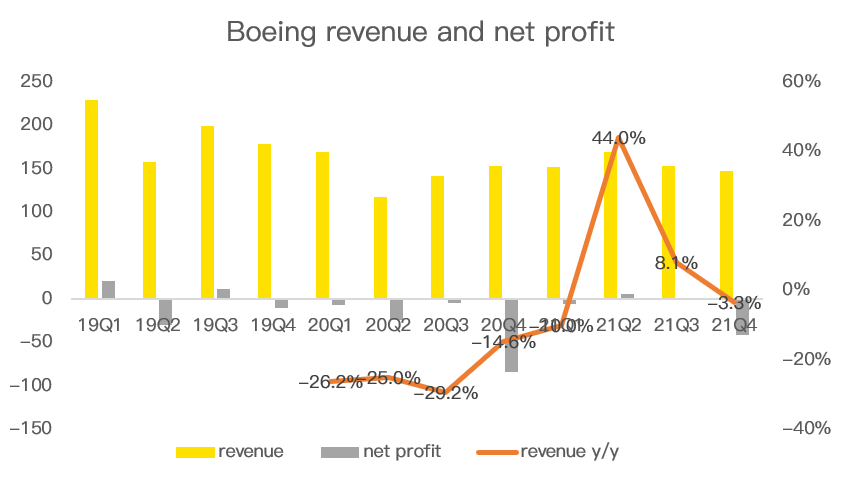
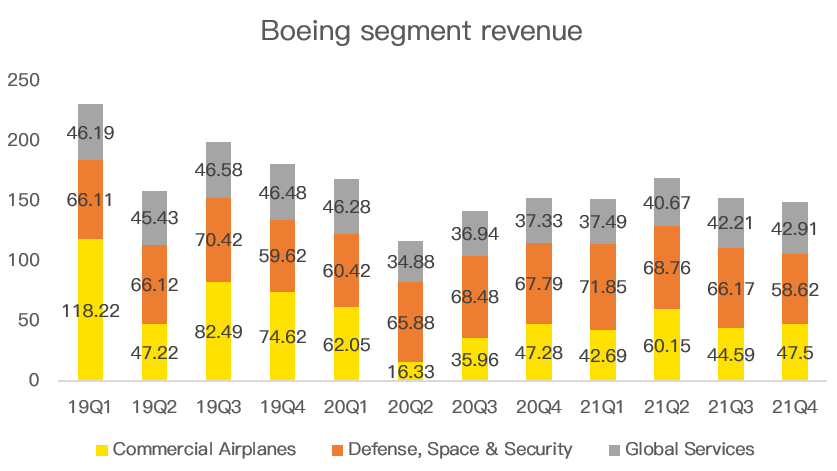
It was said that Boeing 787 deliveries were zero in the fourth quarter last year, compared to four in the same period in 2020.
The main problem with the 787 is a structural defect. The Federal Aviation Administration (FAA) said it does not affect flight safety, but still
suspended its delivery.
Boeing unveiled a US$3.5 billion pre-tax non-cash charge related to 787 delivery delays, and increased 787 abnormal production costs to US$2 billion, significantly dragging down net income in the fourth quarter.
The defense segment reported negative revenue growth of 13.5 percent year-over-year in the Q4, primarily due to lower sales. The performance of this segment has been very volatile and unpredictable over the last two years.
The results of global services segment has been relatively stable, with a 15% year-over-year growth rate in the fourth quarter.
It’s very reasonable to expect the 2022 results.
Looking at 2021, Boeing's revenue was $62.3 billion, up 7% year-over-year, and reversed negative growth in 2 consecutive years:
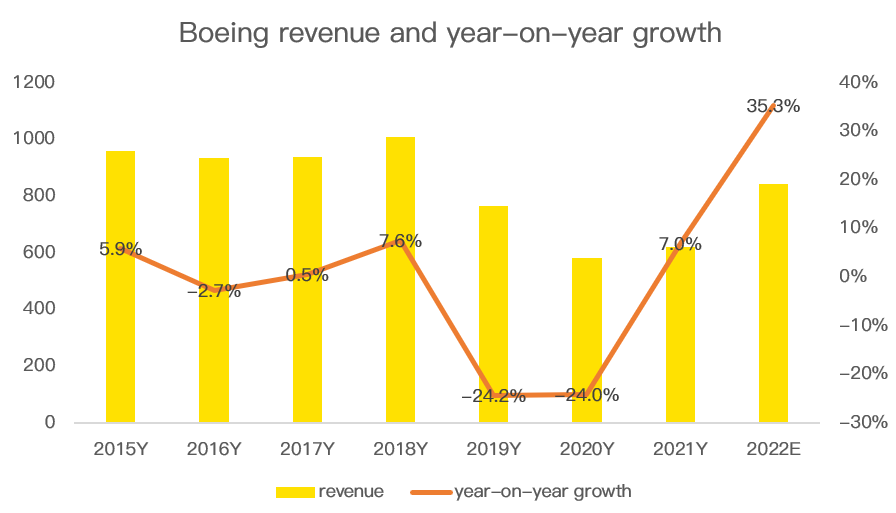
In Q4, Boeing unexpectedly achieved positive cash flow. Management expects cash flow to accelerate rapidly in the second half of 2022 and to be much higher in 2023.
Deliveries are expected to continue to grow as 737 resumes flights around the world. Boeing's fundamentals arrived at a turning point in 2021. Regardless of its valuation, 2022 could be a key year for Boeing to rank top again.
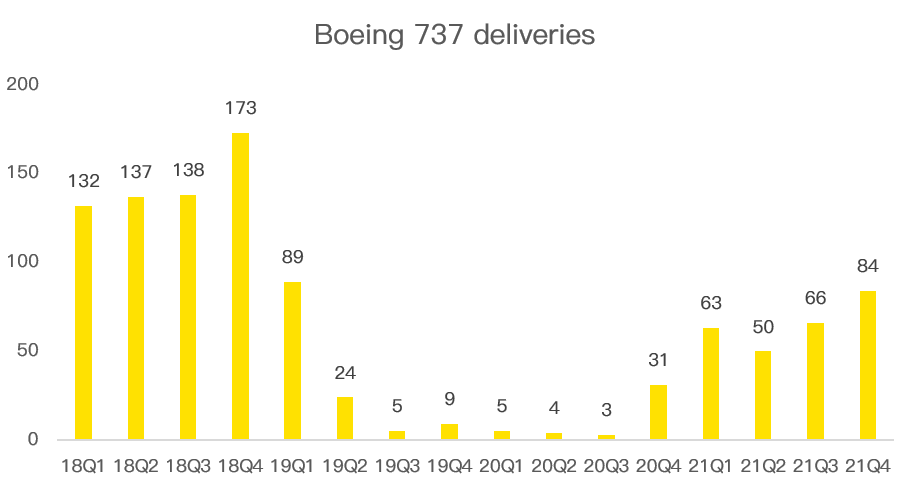
Boeing's annual net profit was around $6.5 billion in its heyday. On the assumption that Boeing revenue can peak again in the next 2 years, a
forward P/E ratio of 18x is in the higher range compared to the historical valuation of 14-25 times.
Therefore, in addition to re-achieving high revenue, Boeing needs to present better results to win investors' favor. After all, its archenemy Airbus has been crowned the world's largest aircraft manufacturer for three consecutive years.
Disclaimer: Investing carries risk. This is not financial advice. The above content should not be regarded as an offer, recommendation, or solicitation on acquiring or disposing of any financial products, any associated discussions, comments, or posts by author or other users should not be considered as such either. It is solely for general information purpose only, which does not consider your own investment objectives, financial situations or needs. TTM assumes no responsibility or warranty for the accuracy and completeness of the information, investors should do their own research and may seek professional advice before investing.

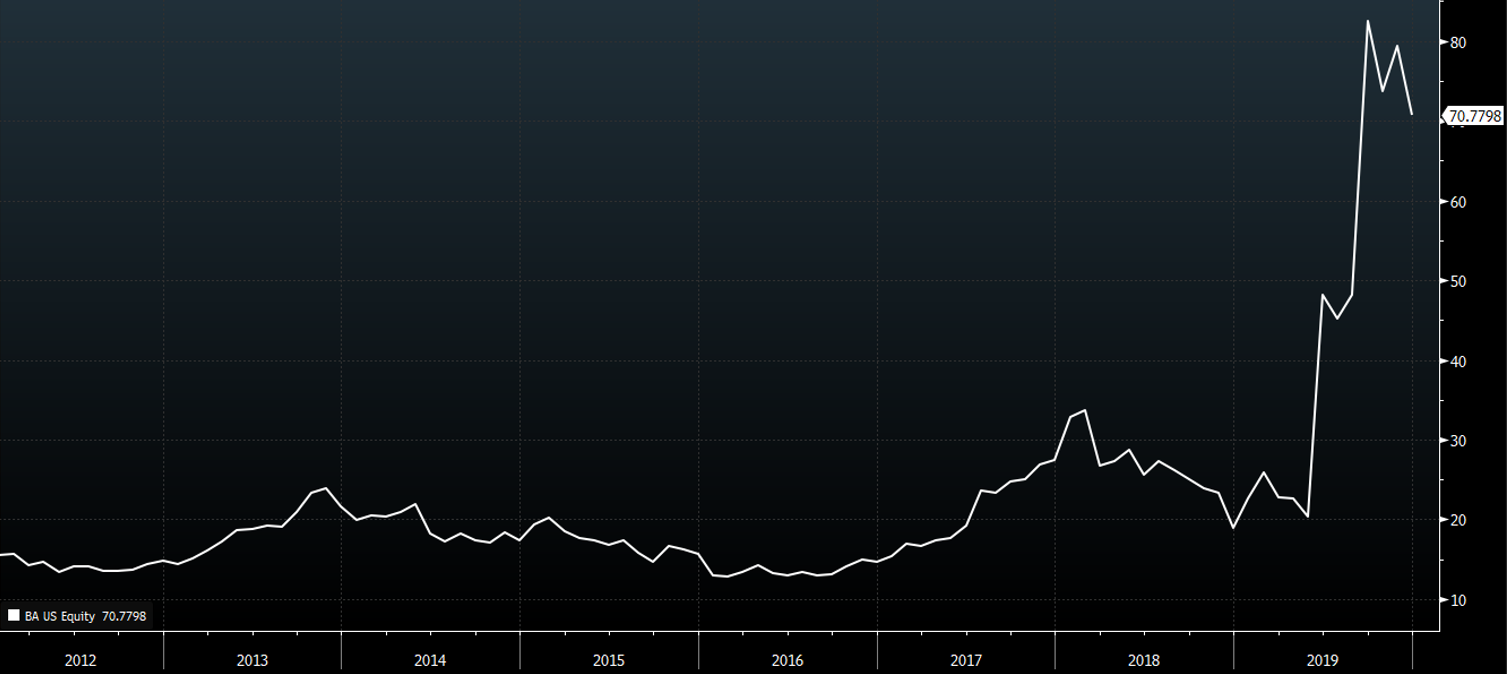
[微笑]
谢谢你!